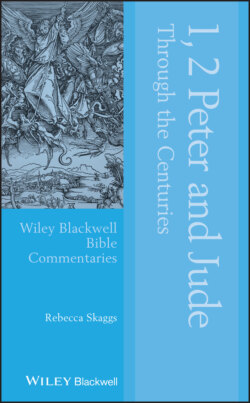Читать книгу 1, 2 Peter and Jude Through the Centuries - Rebecca Skaggs - Страница 41
Other Interpretations
ОглавлениеThe writers of the French Confession (1559, 1571) affirm that “the word contained in these [Old Testament] books has proceeded from God” (Pelikan II, IV: 376).
In 1869, Jane Borthwick (1813–1897) communicated this relation of the prophets to the fulfillment and the ultimate unity that results in Christ (1:10) in the words of the hymn, “Hasten the Time Appointed.” The hymn concludes with the joy anticipated in the future:
Hasten the time appointed,
By prophets long foretold
When all shall dwell together,
One Shepherd and one fold.
Let every idol perish,
To moles and bats be thrown
And every prayer be offered
To God in Christ alone.
Let Jew and Gentile, meeting
From many a distant shore
Around one altar kneeling,
One common Lord adore.
Let all that now divides us
Remove and pass away,
Like shadows of the morning
Before the blaze of day.
Let all that now unites us
More sweet and lasting prove
A closer bond of union,
In a blest land of love.
Let war be learned no longer,
Let strife and tumult cease,
All earth His blessed kingdom
The Lord and Prince of Peace.
O long expected dawning,
Come with thy cheering ray!
When shall the morning brighten,
The shadows flee away?
O sweet anticipation!
It cheers the watchers on
To pray, and hope, and labor,
Till the dark night be gone.
(cyberhymnal.org)
Ralph Waldo Emerson (1803–1882) was an American philosopher, essayist, and transcendentalist poet. Although he is best known for his humanist writings, such as “Self‐Reliance,” he was deeply interested in spirituality and ethics (biography.com website). Emerson was intensely interested in the “Spirit’s involvement in the New Testament writings” (1992: 269–270). At the dedication of the Second Church vestry in Boston, Mass. on February 28, 1831, he specifies that one of the purposes of the dedicated hall was to provide a place for the work of the “Spirit of the New Testament, not the letter.” The attraction of the gospel, according to Emerson, is the love that “glows in its pages … when it teaches the humble believers that God is love … that God dwelleth with the humble [Mt 18.4; Js 4.6 and 1 Pet 5.5] … that we should be holy as he is holy [1 Pet 1.16]. ”
